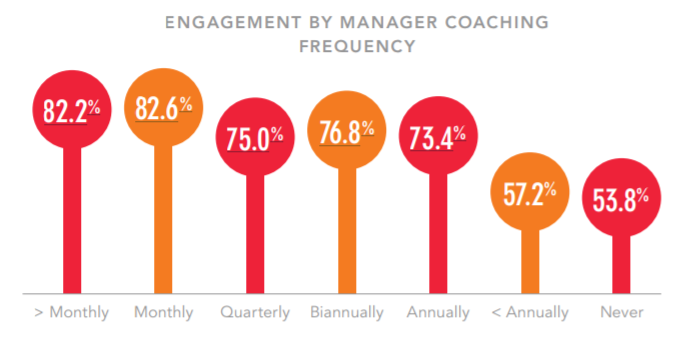
HR Handbook for Implementing Manager Coaching
Wouldn’t it be great to have an HR handbook for implementing manager coaching?
While we are loathe to assign management or leadership responsibilities to HR, it can certainly be HR’s duty to help create some consistency and a process to ensure coaching conversations are used to effectively engage and develop employees as part of every new manager training program.
The 6 Step HR Handbook for Implementing Manager Coaching
Use this six step HR handbook for implementing manager coaching to help make coaching a bigger part of your employee and management development program.

In order to coach effectively, managers need to understand where employees are coming from, what obstacles stand in the way of their development, and what motivates and drives their performance.
Monitor manager coaching sessions to make sure they stay on track and in line with your goals as a business. Measure the success of coaching by benchmarking and tracking improvement on employee performance, team engagement, and your organization’s business results.
The Bottom Line
85% of hostile employees don’t receive enough coaching from their boss. When management coaching works, it develops a culture of empathy and trust ready to handle both the good and bad times. Invest in developing your top talent with an HR Handbook for Implementing Manager Coaching.
To learn more about improving manager coaching capabilities, download The Top Coaching Mistakes – Is What You Learned All Wrong?
Explore real world results for clients like you striving to create higher performance